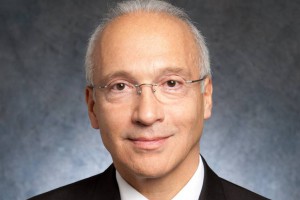Can Donald Trump Legally Require Judge Gonzalo Curiel to Recuse Himself?
Donald Trump is making headlines again for making controversial statements. This time, his statements refer to Judge Gonzalo Curiel’s ethnicity. Judge Gonzalo Curiel is the judge overseeing the fraud case against the now defunct Trump University in San Diego. Trump has made several statements indicating the judge cannot rule impartially.
In a recent interview in the Wall Street Journal, Trump said, “U.S. District Judge for the Southern District of California Gonzalo Curiel has an ‘absolute conflict’ in presiding over the litigation given that he was ‘of Mexican heritage’ and a member of a Latino lawyers’ association.” Throughout Trump’s presidential campaign, he repeatedly and unapologetically claims he will build a wall to seal off the border between Mexico and the United States if elected president.
Trump’s statements have sparked outrage from Democrats and Republicans alike, and Trump hasn’t backed down. He asserts that his statements were “justified” and were “misconstrued.” Trump claims that Judge Gonzalo Curiel’s heritage alone does not make him incapable of being impartial, “but, based on the rulings that [he has] received in the Trump University civil case, [Trump] feel(s) justified in questioning whether [he is] receiving a fair trial.”
Regardless of the validity of Trump’s statements, it calls into question when a party to lawsuit can win a motion to remove a judge from his or her case.
Grounds for Judge Recusal
Motions to recuse or disqualify judges have been made for various reasons, but most often, they are predicated upon a claim that the judge is biased in favor of one party or against another. Other reasons to challenge a judge’s appointment include when the judge has an interest in the subject matter, bias because of the judge’s background or experience, personal knowledge about the parties or the facts of the case, or inappropriate conduct. 
In most jurisdictions, a judge can be disqualified “for cause.” This requires that the party who wants a new judge must show either a basis for disqualification exists by statute or that a reasonable person would question the judge’s ability to be impartial in presiding over the case.
Still, many other jurisdictions have laws on the books which allow parties to seek disqualification on a “peremptory” basis, without making any showing of cause. It is often referred to as “peremptory challenge” or “peremptory disqualification.” In these jurisdictions, the judge is disqualified automatically so long as the challenge is timely filed and the proper procedure is followed. In other words, the judge can be disqualified without making any showing for cause.
It is important to note that California allows peremptory challenges of judges. In that regard, it is possible for Trump’s attorneys to file a peremptory challenge of Judge Ganzalo Curiel so long as it is timely filed in accordance with procedure.
Can A Judge’s Heritage Qualify as “For Cause” Disqualification?
Trump’s legal team has not yet filed a motion to recuse Judge Ganzalo Curiel. Even if they do, it is unclear whether their motion would be timely filed to qualify for a peremptory challenge. If he did not timely file a peremptory challenge, Trump’s attorneys must file a motion to recuse “for cause.”
Assuming Trump files a motion for recusal and bases it on Trump’s allegations that Judge Ganzalo Curiel is inherently unable to rule fairly because of his Mexican heritage, the motion likely would not be granted. A judge may be removed if they demonstrate an inherent bias toward one party.
At this time, Trump’s main assertion of bias is based on Judge Ganzalo Curiel’s heritage alone. He does not allege a pattern of unfair and unfounded rulings against him, or that the judge has made any affirmative statements that lead Trump to believe there is a bias. Further, because Trump’s statements have been made so public, any motion claiming bias would carry an underlying tone of racial prejudice. Recusal will not be granted simply because one party believes the judge’s heritage could play a role in the ruling without additional evidence.

Comments